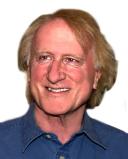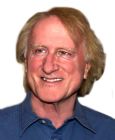Friends
Interview About "Your Friend Forever"
A study of Lincoln and Speed, and male friendship
Posted August 9, 2016
How could historians have ignored Joshua Speed for so long?
It has long been amazing to me that the significance of the friendship between Joshua Speed and Abraham Lincoln has never been appreciated or really even noticed. Speed has lingered in the shadows, when in fact he was absolutely Lincoln’s best friend and the only person to whom he fully opened up about his fears and confusions, especially about intimacy. As a result of this surprising side-stepping of Speed, all kinds of barnacled myths have grown up about the making of Lincoln, his identity, his sexuality, the deeper meaning of his marriage to Mary Todd, and much more. I think I have finally sorted it out. The problem is that historians and (relatively) informed observers have lacked systematic psychoanalytic knowledge to make sense of the extensive primary source materials, especially the vast oral history that William Herndon, Lincoln’s law partner, gathered after 1865. I have been living with this stuff off and on since the mid-1970s. As I say in my preface, I seem to write a book about Lincoln every 40 years or so.
The key argument:
By the time Speed courted and then married Fanny Henning on February 15, 1842, Lincoln had long established his closeness to Speed. Both sought the love of women but seemed terrified by the loss of self in sexuality and intimacy. In the two months leading up to Speed’s marriage (he was then back in his home in Louisville, Kentucky), Lincoln wrote an astonishingly revealing group of letters to Speed in which he vicariously identified with Speed’s own doubts and confusions about his approaching marriage. We don’t have Speed’s replies, but in these letters we see Lincoln revealing himself and his fears as he did nowhere else in anything he wrote (that has survived). The great moment of truth came with Speed consummated his marriage and the next day could barely wait to tumble out of bed to write Lincoln that things went okay and the roof didn’t fall in. Lincoln wrote in reply on February 25 that he was still shaking ten hours hours later after the receipt of the letter. That is a long time for a man of 33 years of age. It was also the turning point of Lincoln’s life. Having identified with Speed, and since things went well in the consummation, Lincoln could now cast aside his fears and within months began again to court Mary Todd, whom he had rejected over a year before. They were married the following November. A week later, Lincoln wrote to a friend that he had just married, which to him was a “matter of profound wonder."
On Lincoln’s depression:
Lincoln was always depressed. He suffered from what they called hypochondria, or sometimes hypochondriasis, in the 19th Century (he dubbed it almost affectionately his “hypo”). Depression was part of Lincoln's self experience, and it was not unrelated to his profundity. It is hard to imagine someone able to probe beneath the surface of things not subject to some depression. In that he is the quintessential example of profundity in our political history. But at least twice he fell into the dark hole of clinical depression and actively pondered suicide. Once was when his betrothed, the lovely Ann Rutledge whom everyone loved in New salem, died suddenly in August of 1835. His friends set up a death watch and he told a friend he was afraid to carry a pocket knife. The second depression was in the immediate wake of his broken engagement with Mary Todd in late December, 1840, that coincided with his separation from Speed. It was the separation from Speed that no one else has noticed, and what I feel is the heart of things in January, 1841, when Lincoln took to his bed, hallucinated, his friends removed his razor, and he went “crazy as a loon” in the words of his friend, William Butler.
How can we understand Lincoln’s behavior:
Historians have come up with all kinds of spurious explanations for Lincoln’s behavior. One is that he was gay and his relationship with Speed was sexualized. That is why he couldn’t marry Mary Todd. The evidence against this argument is quite compelling and I go through it in depth in the book. The second line of approach, developed more recently, is that on the contrary Lincoln often turned to prostitutes, left many broken hearts on the ground, and turned away from Mary because he was suddenly smitten with the beautiful Matilda Edwards who arrived in Springfield in November of 1840. This explanation entered the rumor mill at the time and then the oral history. But she said herself that Lincoln never “stooped” even to pay her a compliment (and all the prostitute stories are Lincoln jokes that got lost in translation by the earnest Herndon).
What makes Lincoln stand out as the greatest of all heroic Americans?
We admire Lincoln for good reasons. He possessed all the qualities one most hopes for in a leader, especially his profundity, authenticity, and genuine honesty. He was also shrewd and able to lead us through our greatest crisis and make us a better people, moving ever so slowly toward a complex and heterogeneous society. Others have told that story well. Mine is the making of a young great man.
I am indebted to Ken Fuchsman for his questions and editing from which these responses have been drawn. The full interview will appear in Psychohistory Newsletter, Fall 2016, Vol. 35, Issue No. 4.


